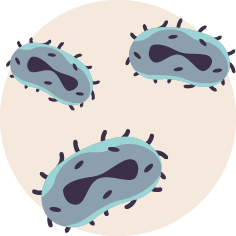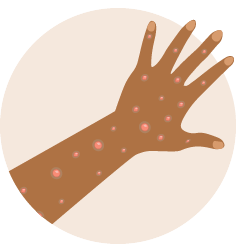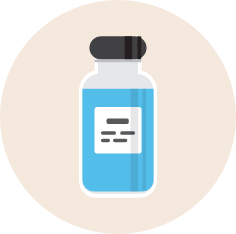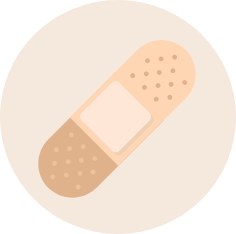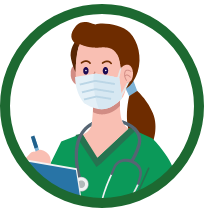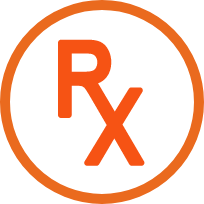Understanding viral risks while living with HIV
People living with HIV who are not virally suppressed could be at a higher risk for severe illness caused by viruses.
On this webpage, you will find information on a variety of health conditions that disproportionately impact people living with or at risk for HIV. These health issues include monkeypox, sexually transmitted infections (STIs), hepatitis, and problematic substance use. If you are viewing this webpage on a desktop or laptop computer, you can use the links found to the right of this text to skip around to the health topic(s) that interest you most. If you are viewing this webpage on a tablet or smartphone, you can use the links found above this text to skip around to health topic(s) that you find most interesting. If you have any questions about the content found on this webpage, please feel to email them to HIVandMe@Utah.gov; a public health professional with the Utah Department of Health and Human Services would be happy to get back to you and provide you with additional health information or resources.
Wellness topics on this page










What People Living with HIV Need to Know about Monkeypox
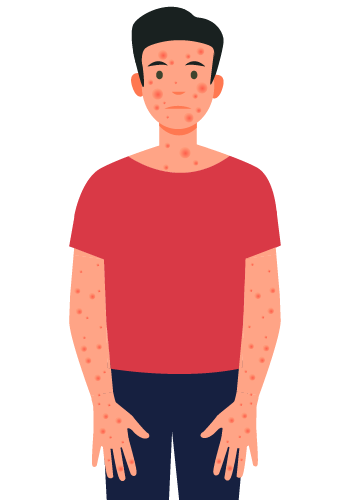
Monkeypox Treatment
There are no treatments currently approved specifically for treating monkeypox. However, antiviral medications used to treat smallpox could also be useful in treating monkeypox.

Monkeypox Vaccines and People Living With HIV
Utah has a limited supply of monkeypox vaccines available, which are currently being prioritized for people at the highest risk for monkeypox. This includes non-binary people and transgender or cisgender men who have sex with men, and who have had more than one sex partner in the previous 14 days. People who have been exposed to a probable or confirmed monkeypox case are also eligible. If you believe you may be at risk for monkeypox, contact your local health department to determine your eligibility for receiving a vaccine.
People living with HIV should know that it’s safe to keep taking most HIV medications while receiving treatment or vaccinations for monkeypox. However, you should still tell your healthcare provider about all the medications you’re currently taking, so they can determine if there may be potential interactions.
Monkeypox and PrEP for HIV Prevention
- Monkeypox does not impact the effectiveness of HIV pre-exposure prophylaxis (PrEP).
- If you are taking PrEP and receive a monkeypox diagnosis, you can safely continue taking your PrEP as prescribed.
How to Stay Safe from Monkeypox
People living with HIV can take the same steps as everyone else to keep themselves safe from monkeypox:
- Avoid contact with sores, rashes, or scabs on someone who has monkeypox, especially during sex. The CDC believes monkeypox is most commonly spread by skin-to-skin contact.
- Avoid contact with items, surfaces, and fabrics (like bedding, clothing or towels) who have been used by someone with monkeypox.
- Avoid exposure to respiratory secretions transmitted by kissing and other face-to-face contact.
What People Living with HIV Need to Know about COVID-19
COVID-19 vaccines are safe and effective for everyone, including people living with HIV.
Getting vaccinated is the most important thing you can do to protect yourself and others—and to help end the COVID-19 pandemic. Since nearly half the people living with HIV in the United States are older than 50, and because people living with HIV can often have other chronic health conditions, it makes sense to take extra precautions and follow all CDC-recommended prevention measures.
HIV and STIs: What You Need to Know

The Link Between STIs and HIV
It’s common for people diagnosed with STIs like gonorrhea, syphilis, or herpes to also be living with an HIV co-infection. Even HIV-negative people with other STIs are more likely to become HIV-positive, because the same circumstances and behaviors that put them at risk for STIs also put them at risk for HIV.
Sores or broken skin from STIs like herpes or syphilis can allow HIV to enter your body more easily. If you’re sexually active, you should regularly get tested for HIV and other STIs, even if you aren’t experiencing any symptoms.
Risky Behaviors for STIs and HIV
Activities that can put you at risk for HIV and STIs include:
- Having anal, oral, or vaginal sex without a condom
- Having more than one sex partner
- Having sex with anonymous partners
- Having sex after consuming alcohol or drugs, which can lead to riskier sex behaviors
HIV and STI Prevention
The only way to be 100% protected from STIs is to avoid having any kind of sex in the first place. If you are having sex, there are steps you can take to decrease your odds of getting HIV and other STIs:
- Choose lower-risk sex activities (those that avoid contact with semen, vaginal fluids, or anal secretions)
- Use a condom correctly every time you have anal, vaginal, or oral sex
- Minimize your number of sex partners
- Limit or avoid using drugs and alcohol before and during sex
- Get tested regularly for HIV and other STIs
- Ask your healthcare provider if PrEP or PEP could help lower your HIV risk
HIV, STIs, and Risk for Your Partner(s) STI Prevention
If you are living with HIV and contract another STI, you could be increasing your HIV-negative partners’ risk of getting HIV. That’s because STIs can cause inflammation or sores in the genital area that can make it easier for HIV to spread.
To reduce your sex partners’ chances of getting HIV, you should:
- Take your HIV medication as prescribed. Antiretroviral (ART) medications can reduce the amount of HIV in your body to levels undetectable by an HIV test. And if your viral load remains undetectable, you have no risk of transmitting HIV to others—even if you have other STIs.
- Choose sex activities that are less risky
- Use a condom correctly every time (and the whole time) you have anal, vaginal, or oral sex

STI Treatment and HIV Prevention
Treating an STI doesn’t stop you from getting HIV, or from spreading HIV to other people. However, treating an STI other than HIV does help prevent long-term complications, and prevents transmitting it to your sex partners.
If you’re diagnosed with an STI, you should talk to your healthcare provider about how you can protect yourself and your partners from getting HIV—and how you can avoid getting infected with the same or other STIs in the future.
HIV and Hepatitis: What You Need to Know
People living with HIV should get vaccinated against hepatitis A and B, and get tested regularly for hepatitis B and hepatitis C. To learn where you can get hepatitis vaccines in Utah, visit immunize.utah.gov.

HIV and Hepatitis A
People living with HIV who have underlying liver disease are at risk to become severely ill from hepatitis A. Hepatitis A outbreaks have become widespread in the U.S. since 2016, which is why the CDC recommends people living with HIV get vaccinated.
People living with undetectable HIV may have a reduced response to the hepatitis A vaccine, so anyone with HIV should be tested at least one month after finishing their hepatitis vaccinations to make sure they’re working as intended.
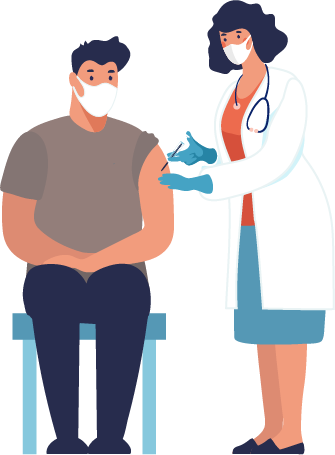
HIV and Hepatitis B
Because HIV and hepatitis B are both bloodborne viruses that spread mainly through sex and injection drug use, many people at risk for HIV are also at risk for HBV. People living with HIV who later get hepatitis B have a higher chance of experiencing severe liver disease and even death. That’s why it’s so important for people living with HIV to get vaccinated against hepatitis B. Just like hepatitis A, it’s recommended for people with HIV to undergo post-vaccination testing 1-2 months later to ensure the hepatitis B vaccine is working.

HIV and Hepatitis C
Hepatitis C is spread by exposure to blood, so it’s common for injection-drug users living with HIV to also be co-infected with hepatitis C. While injection drug use is the most common method of transmission, hepatitis C can also be spread through sex—especially by HIV-positive men who have unprotected anal sex with other men, or who share sex toys. And although the risk is low, even non-injection drugs (that you smoke or snort) can increase the risk of getting hepatitis C.
Hepatitis C is one of the leading causes of chronic liver disease in the U.S., and it causes liver damage even faster among people who are also living with HIV. It can also impact the effectiveness of HIV treatment. The CDC now recommends everyone age 18 or older get tested for hepatitis C at least once—and if you’re at risk due to injection drug use or other factors, you should get tested regularly.
HIV and Substance Use: What You Need to Know

HIV and Substance Use
Substance use disorders are closely associated with HIV and other STIs. Injection drug use can easily transmit HIV if people are sharing needles, syringes, or other injection tools. In addition, using substances like alcohol, poppers, meth, heroin, or prescription opioids can increase your risk for HIV, because drugs and alcohol alter your judgment and can lead to risky behaviors like having multiple sex partners or having sex without a condom.
Substance use can cause HIV to progress faster, reduce the effectiveness of HIV medication, and overall lead to worse health outcomes among people living with HIV.
Commonly Used Substances and HIV Risk
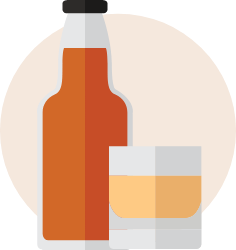
Alcohol
Heavy drinking is associated with risky sexual behaviors that can lead to HIV infection and transmission. It can also hurt treatment outcomes among people living with HIV.
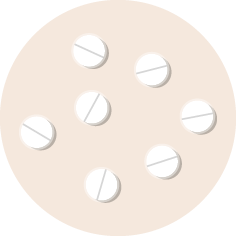
Opioids
Opioids include heroin and prescription painkillers, and are related to risky behaviors like sharing injection equipment and having unprotected sex.
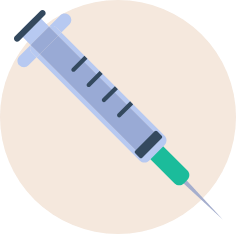
Methamphetamine
Meth is associated with risky sex behaviors that can increase someone’s risk for becoming HIV-positive. Injecting meth can also put people at risk for HIV infection and transmission if they are sharing needles.

Crack cocaine
Because it’s highly addictive, using crack cocaine can eventually lead people to exchanging sex for money or drugs, which increases the likelihood of getting or spreading HIV.
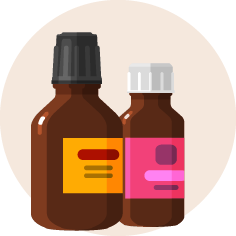
Inhalants
Poppers are associated with risky sexual activity among men who have sex with men, which can increase the risk of spreading HIV and other STIs. They’re also frequently used along with other drugs, leading to additional risk factors.
